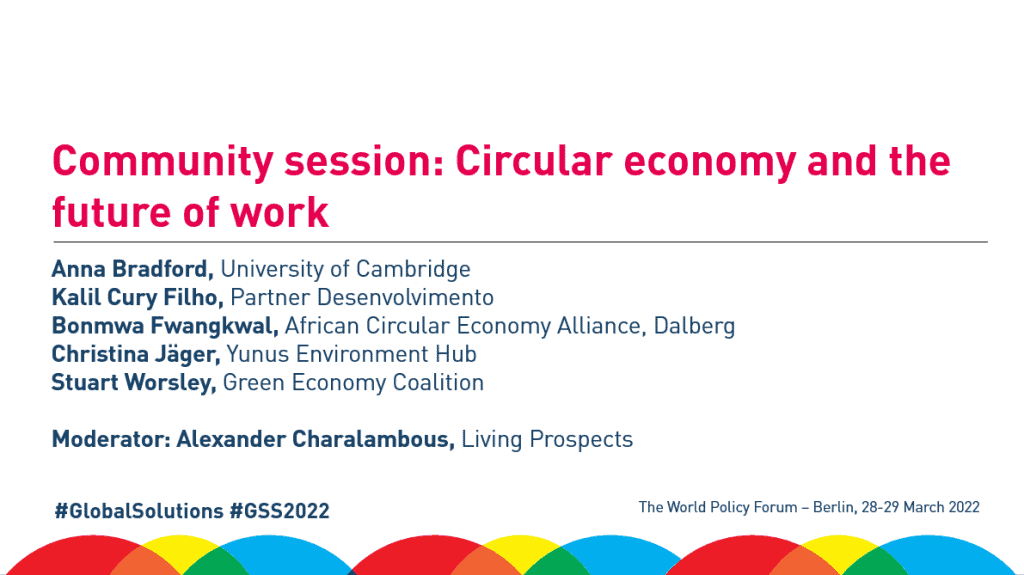Circular economy and the future of work
Unfortunately, the recording of this session is not available.
Description of the session
The world as we know it is rapidly changing. Next to the Covid-19 pandemic, persistent challenges like growing inequalities, increasing natural resource use, waste and pollution, rapid urbanisation, and climate change call for greener, fairer, yet more efficient economies. We are about to experience a transformational change in the way we produce and consume. Subject to resource availability, technological advances will make this transition possible at an unprecedented speed, globally. The circular economy can fuel the change by creating value and resources from reused or recycled products and materials. Essential questions are raised.
What does this mean for the labour market? Will there be loss of jobs in the extracting economy and emergence of new jobs in the circular economy?

What jobs are about to change? What voice do we have in shaping these changes? What skills are needed for future jobs?
Will circular economy jobs lead to improvements in workers’ compensation and services?
In the interest of a “Just Transition”, multilateral arrangements are needed to discourage economic and social disparities between the global North and South, between and within economic sectors, and between formal and informal workers. This session will gather insights from thought leaders in business, civil society, research, and policy making on the circular economy and the future of work. It will highlight solutions and provide recommendations to be implemented in the context of coordinated G20/G7 initiatives towards a just transition to a circular economy.
Key messages of the session
Significant changes expected to be brought in the labour market by the circular economy
Changes are not only related to jobs and wages, but also to labour culture, in terms of how we perceive our work, including how we value our work and its results
Still, we need to learn more about the impact of the circular economy on both work and livelihoods
Appropriate policies are necessary to make sure the transition is inclusive
At the implementation level, innovative solutions are being tested, including social enterprises paying circular economy workers (e.g. recyclers) on the basis of the environmental & social benefit of their work as opposed to the cost of the materials they collect and/or recycle.
Importance of financing to reach small companies and the informal sector
